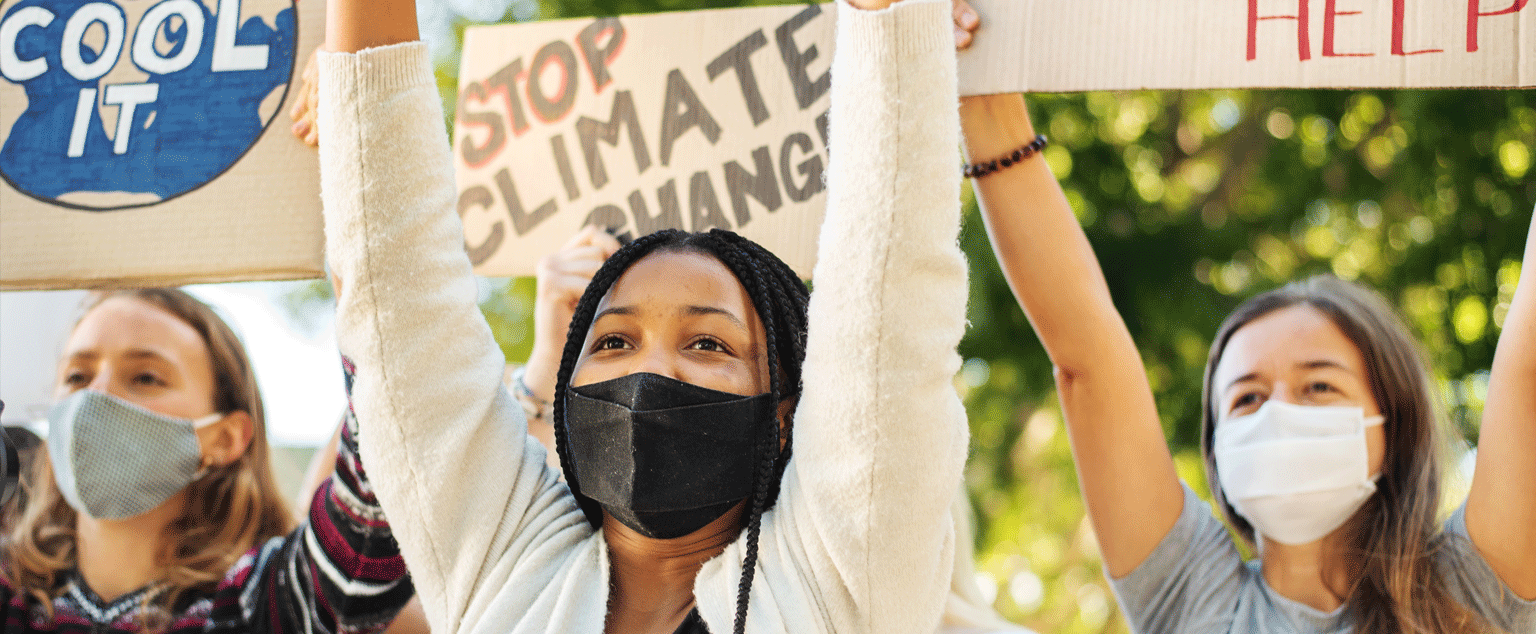5 Ways To Manage Eco-Anxiety

We suggest five ways to support teens experiencing this new teen anxiety.
Every generation has faced its own challenging global events. From plagues, to wars, to economic collapses and everything in between, each generation has dealt with their share of uncertainty and unrest. And unfortunately, Generation Z is no different.
Many of today's adults have grown up with the idea of global warming and shifts within the planet's behaviour, (think Al Gore, Greenpeace, and Leonardo DiCaprio) so while the concept is not new to us for Gen Z, it's not just an 'imminent threat' it's a lived reality- and one they are acutely aware of.
With extreme floods and hurricanes, melting ice caps, unprecedented fires, and rising sea levels are no longer forewarning headlines, Generation Z is experiencing actual climate change in real time, and this has led to a rise in what is now known as 'eco-anxiety'.
What is Eco-Anxiety?
The American Psychological Association have defined it as the "Chronic fear of environmental doom." Their research over the past few years has highlighted the relationship between natural disaster and mental health. This specific strand of anxiety focuses on concerns about carbon footprint, change in weather, deforestation, extinction, and lack of access to food, among other things. A recent, first of its kind, survey showed that45% of young people across 10 countries admitted that climate change "negatively affected their daily life and functioning".
Some symptoms of eco-anxiety include:
- Heightened stress
- Anger, sadness, low moods, and hopelessness
- Depression
- Mounting anxiety
- Irritability
- Fixation, worry
- Difficulties at school/difficulties with focus
- Difficulties sleeping
- Feeling displaced
- Feelings of mistrust
With this additional threat to teen mental health on the rise, it's important for parents to be able to understand and support their teens' fears around the topic.
But, how exactly?
Arm Yourself With Knowledge
Before attempting to help or comfort your child, it's important to address your own understanding of the evolving climate crisis. Often, vital conversations around climate change aren't happening between parent and child because it's also a scary concept for adults to address. But rather than avoidance, our children need us to actively engage with current, up-to-date environmental concerns in order to trust and share their feelings with us
Listen
When your child comes to you with their environmental fears, the best thing you can do is listen and acknowledge their feelings. It's tempting to want to steer your child's mind away from negativity and to want to minimise their concerns, but sometimes this can have the opposite effect. If your child believes that you are an ally, they can carry less of the emotional burden themselves simply by confiding in you.
Encourage and Inspire
One of the most powerful antidotes to eco-anxiety is action. Taking action can give your teen a sense of purpose and help them to feel like they're making a significant difference. This can lead to reduced feelings of overwhelm and hopelessness, which are common symptoms associated with eco-anxiety. Perhaps you can find some local communities and advocacy groups for your teen to join. Activities might include picking up rubbish, growing or adding to a neighbourhood garden, and participating in food waste reduction, to name a few. Involvement in these group activities will remind your teen that they are not alone in their activism.
Work Together
'Charity starts at home' and the same can be said for environmentalism. Again, your teen might feel less alone when it comes to their fears surrounding the climate crisis if you're working together as a family. No one family can do it all, but if you decide on what's possible for you - and stick to it - you'll help to foster an environment of activism and responsibility, which can help to ease your child's anxious mind.
Shared household activities can include recycling, vowing to reuse, upcycle, or donate where possible, using public transport or cycling when possible, carpooling, cutting down on single-use packaging items when shopping, and switching off lights and appliances when they're not in use.
Be a Beacon of Hope
As the adult, your child most likely looks to you for guidance. While you may have to deal with the default teen assumption that you can't understand what they're worried about because of your age/generation, your attitude and behaviour can help set the tone and example for how to manage eco-anxiety. While it's important to actively engage with scary world news and to take part in environmental activism and actions where possible, it's equally important to encourage rest, self-care, and a hopeful mindset. You could do this by reminding yourself and your teen that you are doing your best. You could also plan family days out and enjoy connecting with nature to remind yourselves that while there is devastation, there is also beauty, resilience and hope.
External Resources
https://kidsforsavingearth.org/
https://www.greenpeace.org.uk/all-resources/education-resources/
https://www.theclimatecoalition.org/youth-members
https://www.ukycc.com/youth-strike-4-climate
https://ypte.org.uk/





